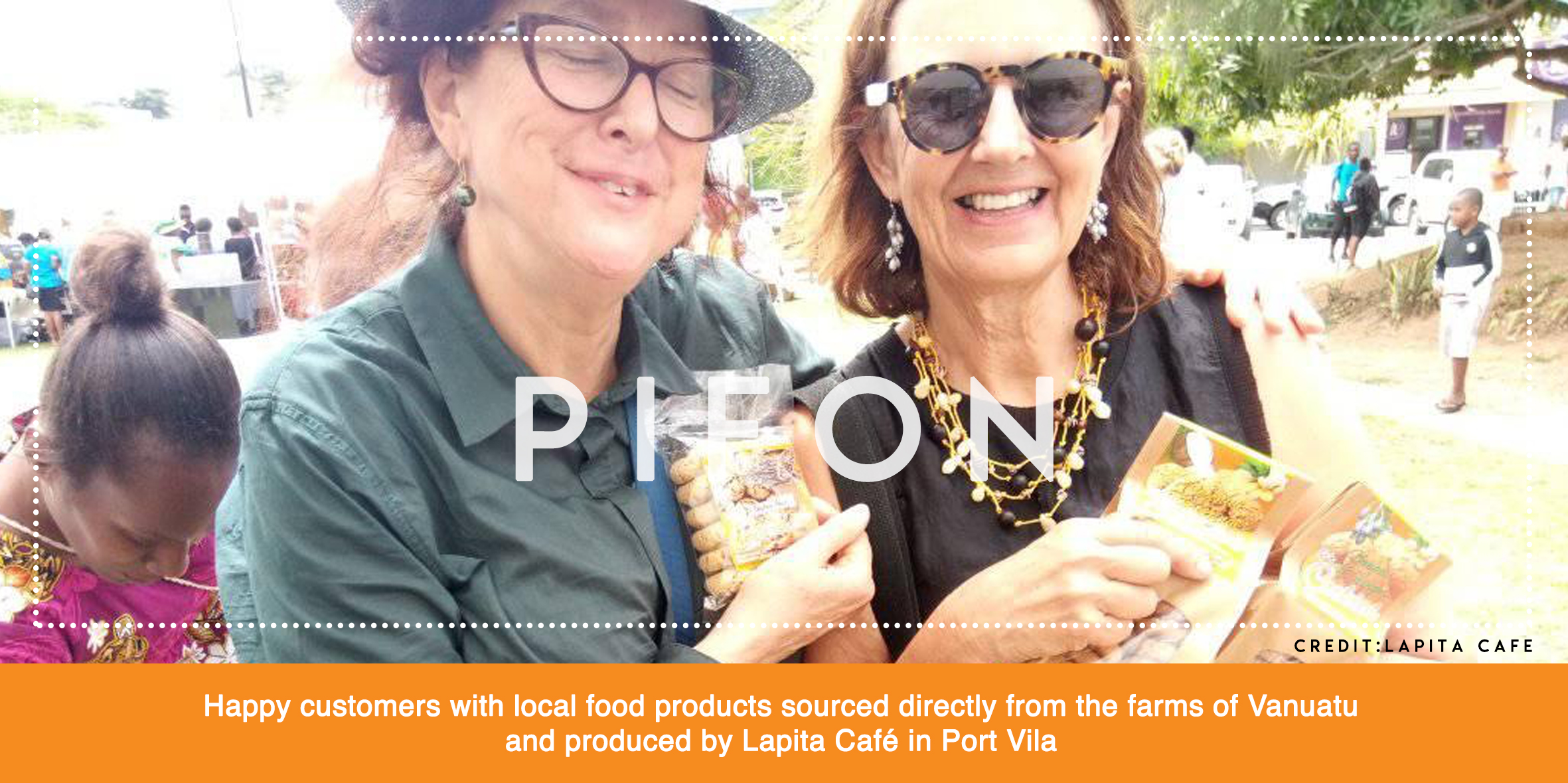b l o g
j a n u a r y 2 0 2 2

The Pacific Agribusiness Research in Development Initiative (PARDI 2) is hopeful tourism will make a sustainable return in the Pacific following the conclusion of the Pacific Tourism Organisation’s Agritourism Talanoa Webinar Series last month.
Hosted by PARDI 2, plans to revitalize traditional food and sustainable farming systems was announced at the ‘Agritourism in Vanuatu Webinar’ as food leaders discussed the future of the sector.
For the last forty years, Vanuatu was a popular tourist destination – throbbing with activity – until the global Covid pandemic closed its borders in 2020.
“A lot of our people became so dependent on tourism that once the tourists stopped coming they did not know what to do,” said Votausi Mackenzie-Reu, the owner of Lapita Café – a boutique family owned business specializing in local food.
While many have been forced to return to the land to survive, locals have found new meaning in their natural surroundings.
This discovery changes the narrative on tourism in a post Covid world where locals now talk about the kind of tourism they want for their country.
“The agritourism strategy is a new direction, it has story and tradition behind it,” Votausi Mackenzie-Reu said.
Like many agritourism operators in Vanuatu, Mackenzie-Reu is excited about the possibilities.
“When borders open we want tourists to see Vanuatu as a traditional food cuisine and cultural destination, we want tourists to experience our natural and organic foods,” she says.
In 2019, international tourism was worth $1.7Trillion in total, with Vanuatuans contributing $325Million.
Around 117, 154 visitors from Australia, China, Europe, Japan, New Caledonia, New Zealand, North America and other Pacific countries came to Vanuatu.
Those numbers dropped to zero following the Covid pandemic.
It will be awhile before borders are open but the industry is optimistic.
“While there’s an immediate need to assist tourism businesses, it’s important to think beyond the current response to COVID-19,” said Patricia Bibi of PARDI 2 who moderated the Agritourism in Vanuatu Webinar.
She said the tourism “hiatus” forced on the industry by the pandemic is a chance to think about the future of the sector.
“Our recovery plans should recognize the importance of supporting agritourism development and building local markets and jobs that will allow for a stronger and more inclusive tourism sector.”
“It requires policy and marketing approaches that support the promotion of traditional and local Pacific cuisine.”
There are now calls to develop agritourism products to increase the value of tourism to local economies.
Pacific Island Farmers Organisation Network’s Lavinia Kaumaitotoya said while farms in the Pacific have various strengths that lend themselves to agritourism experiences, Pacific destinations are not yet well known for culinary journey or agritourism.
“There is an opportunity for farms to promote their communities and cultures, traditions of storytelling and diverse range of crops and traditional agroforests to build agritourism experiences for travelers,” said Lavinia Kaumaitotoya, the manager of PIFON.
PARDI 2 have presented proposals to policy and decision makers, tourism experts, academics and agribusinesses through their various Talanoa Dialogues on developing exceptional agritourism experiences in Fiji, Tonga and Vanuatu.
“The markets are undeveloped and there are also not a lot of statistics available,” says PARDI 2 Research Fellow, Marita Manley.
“Sometimes it’s grouped within nature and eco tours, sometimes it’s not specifically listed as a separate category so it’s difficult to get access to this information but agritourism experiences are aligned to growth sectors in the market so there are opportunities for farmers to diversify their revenue through tourism.”
Marita Manley said quality agritourism experiences tick a lot of boxes in key growth areas in tourism including unique experiences, local experiences, cultural immersion and historical experiences.
